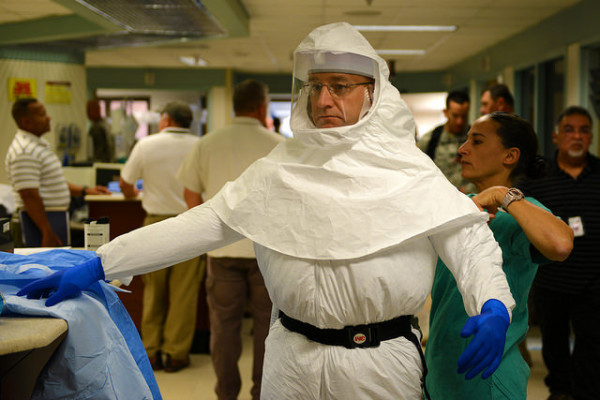It seems that Ebola has become more of an afterthought in the United States as the end of the year approached and other issues came to light. It’s strange to think that the virus was causing such a panic only a few months ago.
There were four patients who contracted Ebola in West Africa and were treated in the U.S. prior to Thomas Eric Duncan, the first diagnosed Ebola case on American soil. Missionaries Dr. Kent Brantly and Nancy Writebol were treated in early August, and Dr. Rick Sacra and the previously anonymous World Health Organization physician, Dr. Ian Crozier, were treated in early September. All of them recovered.
Duncan was diagnosed on September 30 and died on October 8. The next four patients diagnosed with Ebola after Duncan–his nurses Nina Pham and Amber Vinson, an NBC cameraman named Ashoka Mukpo who contracted it in Liberia, and New York doctor Craig Spencer–will also recover. The fifth, prominent Sierra Leone doctor Martin Salia, was flown into Nebraska Medical Center but died a few days later. In all, ten patients have been treated for Ebola in the United States, of which two have died.
Image Source: Pool
Dallas, where the first three U.S. cases were diagnosed, was declared Ebola-free on November 7. All possible contacts with the first three confirmed cases had been tested and monitored over 21 days, the longest amount of time the virus can incubate, with no symptoms.
The last diagnosed case of Ebola in the U.S. was Dr. Spencer, who was released from Bellevue Hospital on November 11. Since Dr. Salia’s death on November 17, there have been no reported cases of Ebola in the United States. Suspected new cases occasionally appear and are usually found negative, but the CDC isn’t ready to declare the United States Ebola-free yet. 35 hospitals have been designated as Ebola treatment centers and are ready to take in any new cases. Center for Disease Control Director Tom Frieden warns not to be complacent as the epidemic continues elsewhere. “Till each of the three countries [Guinea, Sierra Leone, and Liberia] get to the last cluster, the last case, then we’re at risk.”
Feature Image Source: Army Medicine










